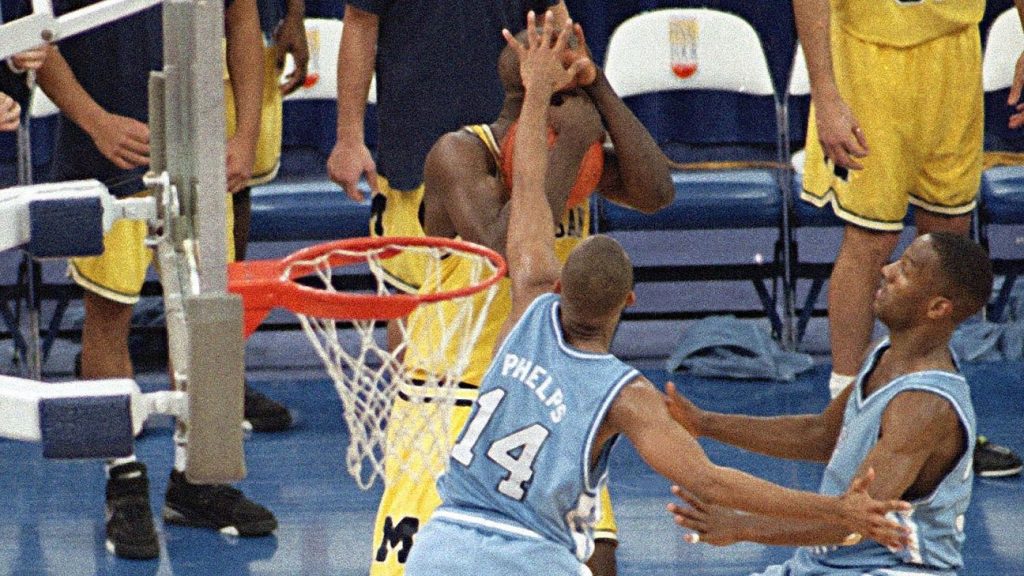
The NCAA tournament, March Madness, is currently going on; it is a fun time for very many people who love basketball, love the sound of collegiate bands, love to reminisce on their days in university.
The NCAA tournament has a long history, nearly 80 years. And, in this long history, there is arguably a moment that surpasses all others as the most famous. This famous moment comes from the 1993 tournament.
It involves Chris Webber. Webber was the top basketball player coming out of high school. He would go on to win the player-of-the-year award in ’93. And would also go on to be the number one pick in that year’s NBA draft. He was a special player.
He played for the Michigan Wolverines, a team that advanced to the championship game. In the final moments of the championship game–11 seconds left–Webber had the ball in his hands.
His team was down by two points.
Two North Carolina defenders converged on him, trapping him, preventing him from moving, passing, shooting. And that’s when Webber called a timeout. But the Wolverines did not have any timeouts.
As a result, the referees hit the Wolverines with a technical foul, effectively making champions out of the Tarheels.
Why did the referees hit the Wolverines with a technical foul?
Because the rules of college basketball required it.
Why did Webber try to call a timeout?
Well, that question is harder to answer–especially, when interviews from his teammates reveal that the team’s coach made it clear that the team had no timeouts to call.
But, what does any of this have to do with immigration?
Many people and companies are like Webber. They try to call a timeout (do something the immigration law does not allow) and, thus, effectively award the game to their opponent (doom their chances of getting the immigration benefit they want).
There is a lot to be said of knowing the rules. There is a lot to be said of knowing where the line (especially a big, bright line) is and crossing it only intentionally.
Crossing lines is great–just look at the impact of former Michigan resident Rosa Parks–but unintentionally crossing lines is often not sensible.
The story of the flight attendant that we highlighted in yesterday’s blog post is a great example of the dangers of haphazardly crossing lines.
